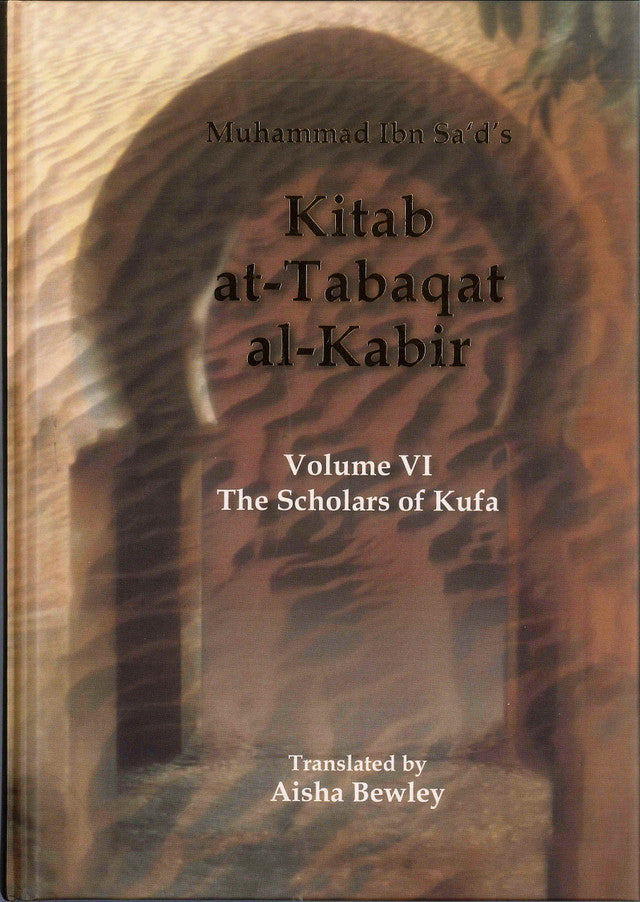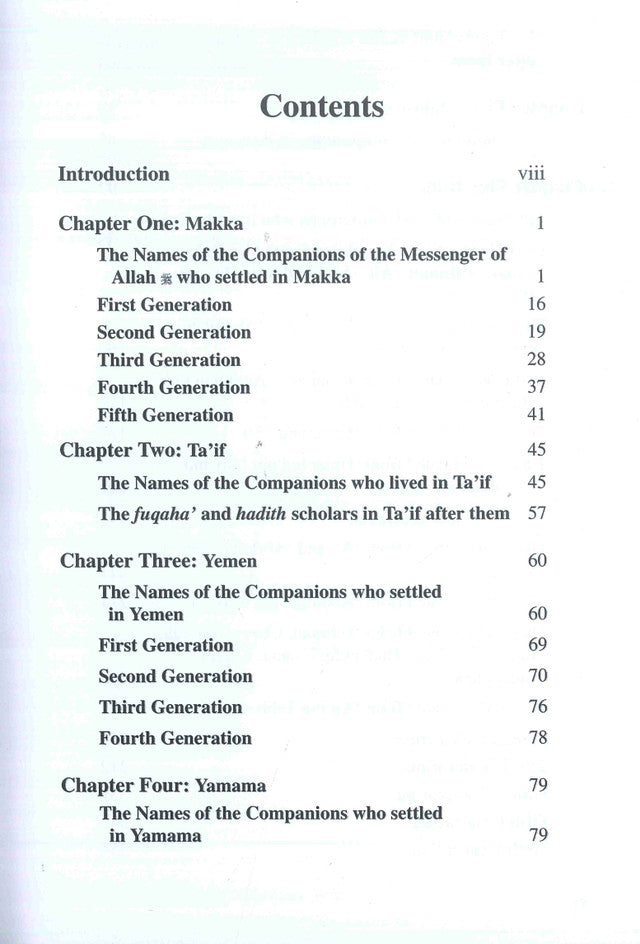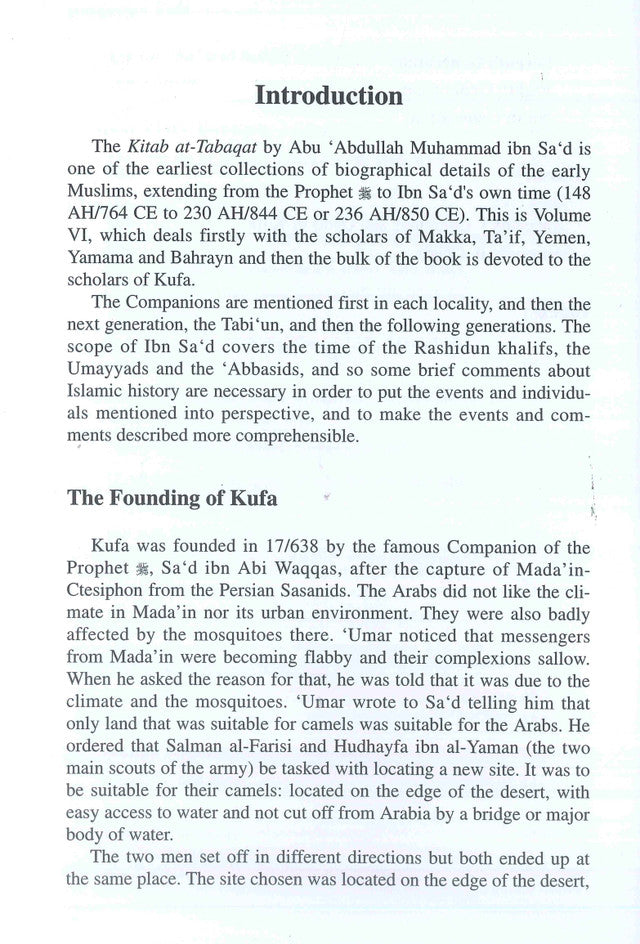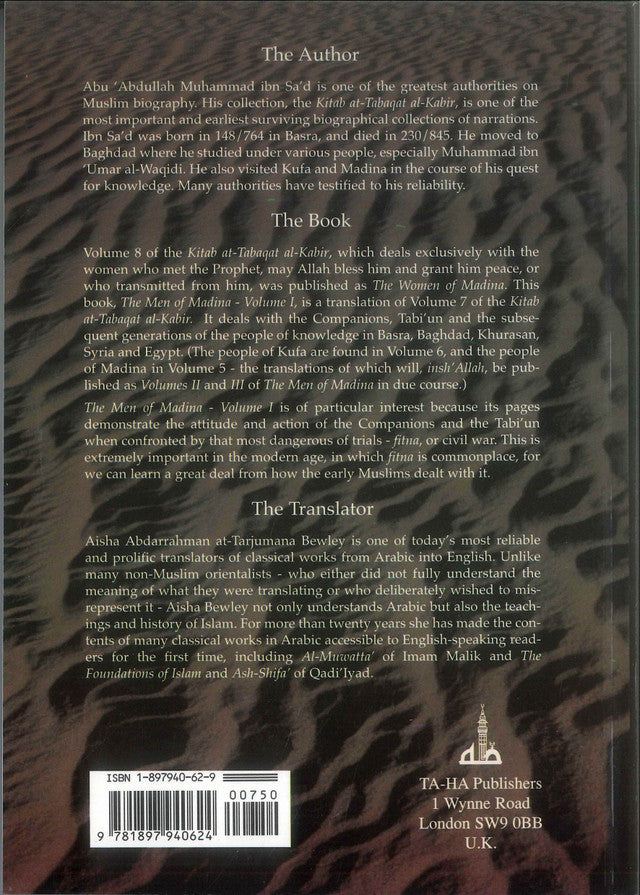Kitab At Tabaqat Al Kabir Volume VI: The Scholars of Kufa
Kitab At Tabaqat Al Kabir Volume VI: The Scholars of Kufa
Publisher:
Ta Ha Publisher
Author:
Aisha Bewley
Language:
English
Binding:
Hard Cover
Pages: 416
Size: A5 |5.8 x 8.3 in| 14.8x 21 cm
Couldn't load pickup availability
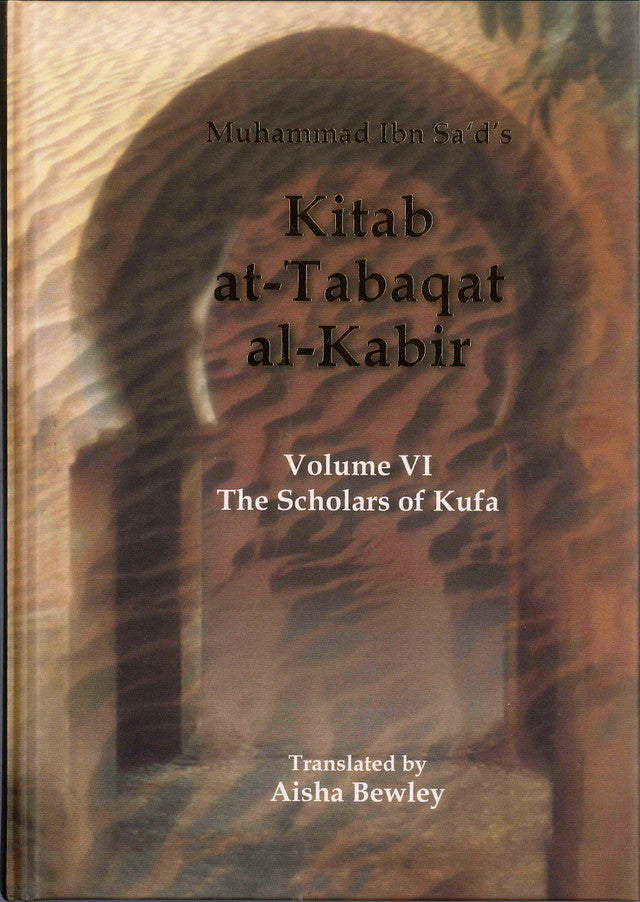
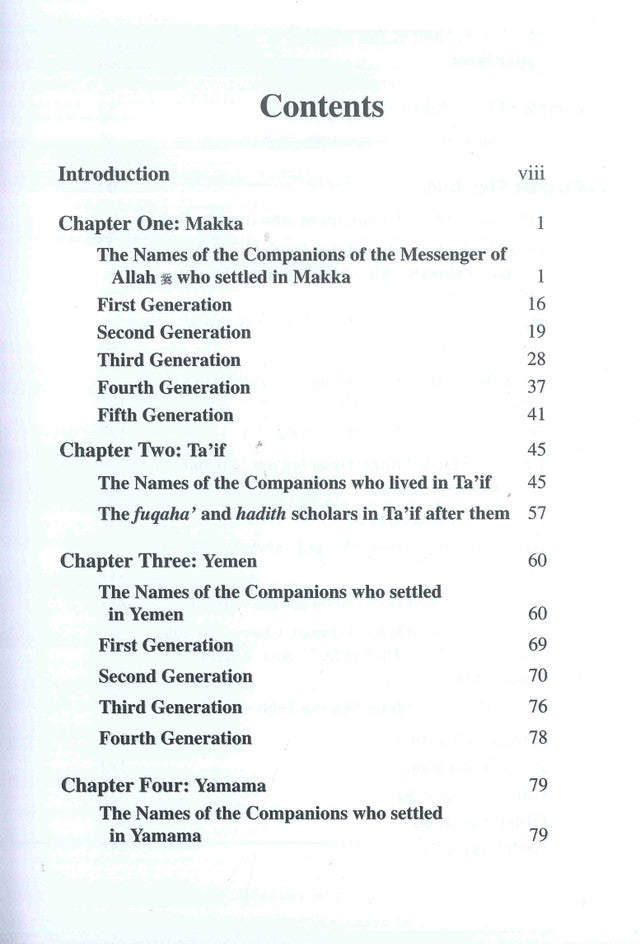
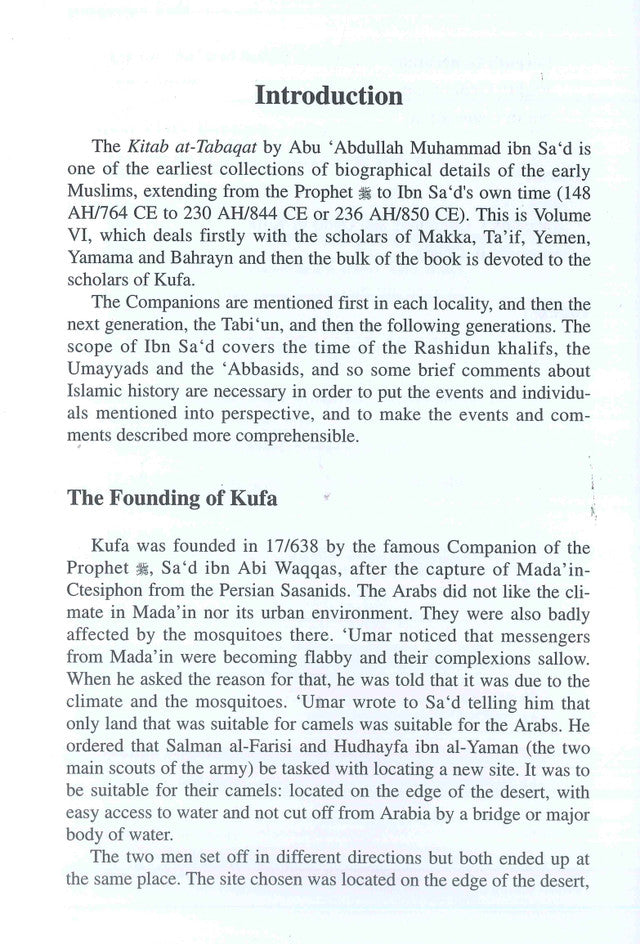
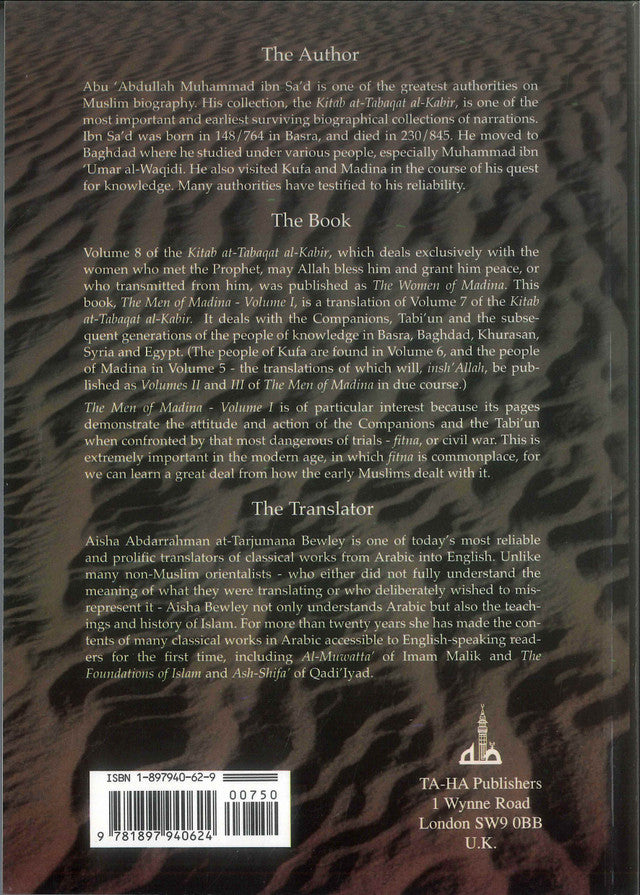
Collapsible content
Description of Book
Publisher
Ta Ha Publisher
Author
- Aisha Bewley
Sample Pages - Content
Muhammad Ibn Sa'd's
Kitab
at-Tabaqat al-Kabir
Volume VI The Scholars of Kufa
Translated by Aisha Bewley
Introduction
Contents
Chapter One: Makka
The Names of the Companions of the Messenger of
Allah who settled in Makka
Introduction
The Kitab at-Tabaqat by Abu 'Abdullah Muhammad ibn Sa'd is one of the earliest collections of biographical details of the early Muslims, extending from the Prophet to Ibn Sa'd's own time (148 AH/764 CE to 230 AH/844 CE or 236 AH/850 CE). This is Volume VI, which deals firstly with the scholars of Makka, Ta'if, Yemen, Yamama and Bahrayn and then the bulk of the book is devoted to the scholars of Kufa.
The Companions are mentioned first in each locality, and then the next generation, the Tabi'un, and then the following generations. The scope of Ibn Sa'd covers the time of the Rashidun khalifs, the Umayyads and the 'Abbasids, and so some brief comments about Islamic history are necessary in order to put the events and individu- als mentioned into perspective, and to make the events and com- ments described more comprehensible.
The Founding of Kufa
Kufa was founded in 17/638 by the famous Companion of the Prophet, Sa'd ibn Abi Waqqas, after the capture of Mada'in- Ctesiphon from the Persian Sasanids. The Arabs did not like the cli- mate in Mada'in nor its urban environment. They were also badly affected by the mosquitoes there. 'Umar noticed that messengers from Mada'in were becoming flabby and their complexions sallow. When he asked the reason for that, he was told that it was due to the climate and the mosquitoes. 'Umar wrote to Sa'd telling him that only land that was suitable for camels was suitable for the Arabs. He ordered that Salman al-Farisi and Hudhayfa ibn al-Yaman (the two main scouts of the army) be tasked with locating a new site. It was to be suitable for their camels: located on the edge of the desert, with easy access to water and not cut off from Arabia by a bridge or major body of water.
The two men set off in different directions but both ended up at the same place. The site chosen was located on the edge of the desert,
The Author
Abu 'Abdullah Muhammad ibn Sa'd is one of the greatest authorities on Muslim biography. His collection, the Kitab at-Tabaqat al-Kabir, is one of the most important and earliest surviving biographical collections of narrations. Ibn Sa'd was born in 148/764 in Basra, and died in 230/845. He moved to Baghdad where he studied under various people, especially Muhammad ibn 'Umar al-Waqidi. He also visited Kufa and Madina in the course of his quest for knowledge. Many authorities have testified to his reliability.
Aisha Bewley
Aisha Bewley is a respected British Muslim scholar and translator, known for her contributions to making classical Islamic texts accessible to English-speaking audiences. She is particularly renowned for her translations of key Islamic works, including the al-Muwatta of Imam Malik and The Noble Qur'an. Aisha Bewley has also written and lectured on a range of topics related to Islamic spirituality, history, and jurisprudence. Her translations are highly regarded for their clarity, precision, and commitment to preserving the depth and authenticity of the original Arabic texts.

